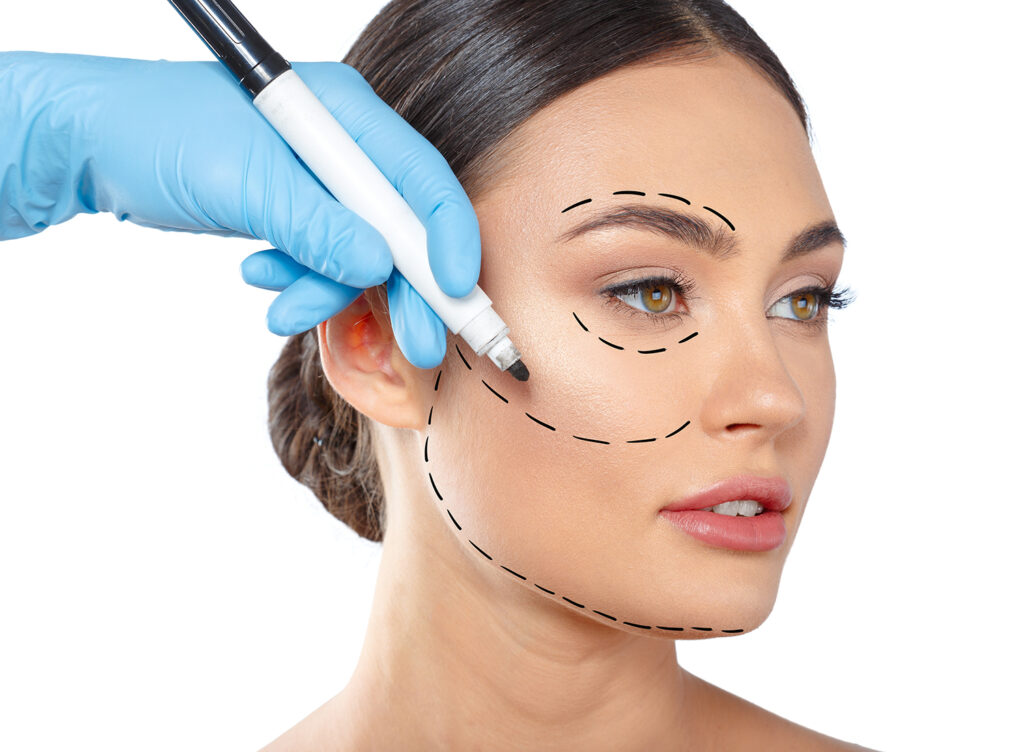Plastic Surgeons vs. Cosmetic Surgeons – What are the Differences?

Whether you’re new to the world of cosmetic surgery or have been in the field for a while, it’s normal to find patients who are unsure of the differences between plastic surgeons and cosmetic surgeons. It’s important to know the differences in order to find the right provider. And let’s face it: from a traditional facelift to more robust laser procedures, it’s no surprise that some patients may be confused.
The term “plastic surgery” may make you think a lot of things, but the purpose of plastic surgery is to restore function as well as appearance. While cosmetic surgery is a type of plastic surgery, cosmetic surgeons only perform cosmetic procedures. Examples of cosmetic surgeries including facelift, chin lift or eyelift. Here’s what you should know:
There are two types of plastic surgery and only one is typically covered by insurance:
- Reconstructive plastic surgery treats parts of the body affected aesthetically or functionally from infection, disease, or trauma, and this may be covered by insurance.
- Cosmetic plastic surgery enhances or reshapes parts of the body, and this is not usually covered by insurance.
“Board-certified” means different things.
Surgeons have different board-certification requirements depending on the board that certifies the surgeon. The American Board of Plastic Surgery (ABPS) and The American Society of Plastic Surgeons (ASPS) are two major societies that certify plastic surgeons. Board-certified plastic surgeons have completed at 6 to 8 years of specific training by an accredited plastic surgery training program in the U.S.
The American Board of Cosmetic Surgery (ABCS) certifies surgeons exclusively in cosmetic surgery.
A board-certified plastic surgeon and cosmetic surgeon each need to complete 4 years of medical school. Plastic surgeons complete 5 to 6 years of medical residency with training in both general surgery and plastic surgery. Cosmetic surgeons complete 4 to 6 years of medical residency in one of an assortment of specialties such as general surgery or dermatology. These surgeons also complete a 1 to 2-year cosmetic surgery training program and pass the certification exam from the American Board of Cosmetic Surgery. (Plastic surgeons pass the certification exam from the American Board of Plastic Surgery).
What patients should do:
Look at a surgeon’s board certification in their specialty. Also review the surgeon’s experience performing the procedure you want. It’s important to review how many times the surgeon has performed the surgery and what complications may have occurred. Even better: check for a high patient satisfaction rating.
At Robinson Facial Plastic Surgery, Dr. Burke Robinson is an award-winning facial plastic surgery with more than 29 years of experience dedicated to only facial plastic surgery. As a double-board-certified facial plastic and reconstructive surgeon, Dr. Robinson specializes in the most advanced surgical and non-surgical facial procedures to enhance the appearance while maintaining natural-looking results. His expert knowledge of facial anatomy and superior aesthetic sensibility give him the keen insight needed to assess the balance of his patient’s features and develop a personalizes surgical approach.



